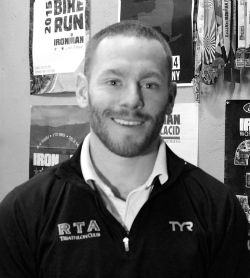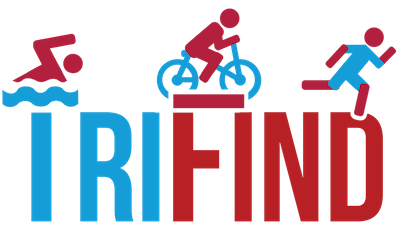5 Tips to Dominate On Race Day

5 Tips to Dominate On Race Day
Execution Strategies to Help Dominate Your IRONMAN
Race day is just around the corner.
You have trained your butt off for several months, if not years. You have made endless sacrifices throughout the process. You feel fit and confident. Simply put, you are in the best shape of your life and ready to have the race you have envisioned.
Not so fast!
While proper training and preparation is extremely important, the ability to EXECUTE on race day will ultimately decide your outcome. The longer the race or event you are participating in, the more important execution becomes as mistakes are magnified. This realization may rattle your nerves a bit, but fear not. Below we will go over 5 execution strategies to help you dominate your next endurance event (i.e. IRONMAN, IRONMAN 70.3, Marathon, Adventure Race, ect).
1. Break it Down
Iron-distance triathlons are LONG and they can also be very intimidating. Instead of looking at the race as a whole, it's often easier to break it down into smaller, more manageable pieces.
Start by breaking the race into 3 pieces. Swim, bike & run. There's a good chance you have already done the distance for each leg individually (or very close to it) on a training day. Thinking about it this way, will help your confidence.
After you break the race apart by discipline, you can also cut each leg into pieces. For example, multi-loop courses like IRONMAN Lake Placid can be broken down by loop. Even if your race does not have multiple loops you can break down the distance within each part of the race. For example, try dividing the 26.2 miles of the marathon into three parts. 10 mi, 10 mi & a 10k (Half marathon = 5mi, 5mi, 5k). Those three separate distances are much less intimidating then 26.2 miles!
Finally, it is very effective to view each leg (swim, bike and run) as a "new day." This way, if you have a miserable swim or you're just not a strong swimmer, it's ok. You get to start over on the bike. It's a new day! The same idea applies if you have a crappy bike.
2. Pacing
An early winner is a late loser.
Needless to say, it is extremely important to race within your fitness and ability. To do this, you need to be smart. Pick a pace you can REALISTICALLY sustain over the distance you are racing OR you'll be setting yourself up for an unpleasant day.
Despite having a plan and contrary to what you may think, many athletes go out WAY too hard on the bike (or run) and find themselves with little to no energy to finish the race the way they expected. You may laugh, but when your adrenalin is pumping and you're well tapered it's very easy to do. Don't be this person. Even if you think "it's your day," save whatever extra energy you may have for the final 6 miles of the run.
It is always best to start your day going out EASY... then once you find your easy, go EASIER! This strategy will pay dividends as the day progresses.
Not only is it best to go out easy and finish strong, but it is also smart to have a pacing strategy. This is especially important for iron-distance races, but also applies to shorter races. I know what you're thinking, 'what the heck is a pacing strategy?' Well, a pacing strategy is NOT going out at your goal race pace hoping you're able to sustain or just hold on. Instead, if you're goal pace is to average 9 minutes per mile and finish the marathon with a sub 4 hour time, start by running your first few miles at around a 10 minute per mile pace.
I know this sounds crazy, but it works every time! This way, you'll allow your heart rate to slowly climb rather then spike. This way your can find your rhythm on your own terms. As you start to clip off the miles slowly start to increase your pace until eventually you'll be finishing your race faster then your average goal pace, looking and feeling like a champ!
Remember, *negative splits are far cooler then blowing up and dragging yourself to the finish line. Running 12 minute miles (if you have to) is far better then walking 18 minute miles on the run. Do the math!
*2nd half of the distance is faster then your first half.
3. Process vs. Outcome Oriented
Everyone has different goals when it comes to triathlon. However, whether you're looking to set a new PR or just finish your first iron-distance triathlon in under 17 hours most athletes have some kind of finish time stuck in their head. This is very normal and it's ok to set goals for yourself, however that number should NOT be your focus on race day.
Finish times and various race splits are an outcome oriented mind set. What happens if race day is crazy hot, rainy or there are brutal head winds? That time you have stuck in your head will likely not come to fruition. The point is, it is far better to take a process oriented approach. Make a list and "check the boxes" as the day unfolds. A process oriented approach means YOU ARE IN CONTROL... no matter what. As a result, you will not lose focus when things you cannot control go wrong.
You can easily apply this approach on race day by making a reoccurring list for you to continually check the boxes while your swimming, biking & running. For example, coach Matt Dixon has his athletes while on the bike "check in" with their form. "How's my cadence? How are my shoulders? Am I relaxed? Then fueling: How am I feeling? What's my energy like? How's my stomach feeling? Do I need to stay off calories for a bit? And finally, pacing: How's my body feeling? Am I at the right power? Am I working hard enough (or too hard)?"
Once you create your own check list you will want to "check in" with yourself every 10-15 minutes. This will help time pass, keep you focused and ultimately lead to the race performance you were hoping for... all while NOT thinking about your time or splits.
4. Highs and Lows
It is inevitable you will experience highs and lows throughout your day. This is ok. It happens to EVERYONE, including world champs.
When you experience a low moment in a race, have no fear, just recognize it, know that it will pass and keep going. It is also a good idea to check in with your body when this happens. Meaning, when you start to feel like crap, ask yourself, "when's the last time I took in calories? Could it be time for a gel?" Often times the "lows" you experience throughout the day are a direct function of your brain acting up because it needs a little "food." So, feed it!
Also, when you are experiencing a low moment it is normal to become annoyed easily. For example a slight head wind on the bike may really irritate you, but try not to let it. Remember, everyone else has to deal with the same headwind. Instead, change your mindset and turn it into a positive. "Wow, this headwind is very refreshing. Thank you Mr. Wind for cooling me down a little."
Finally, the "highs" you will experience are just as important to recognize as the lows. You want to be careful not to over exert yourself when your feeling good.
For example, when you ride/run past a crazy crowd of wild fans (family, friends, teammate, total strangers), don't accelerate and show off. Stay cool, calm, collect and continue to race your race. Control yourself as this can bite you in the butt later in the day.
5. Your Secret Weapon
This is one thing you should not leave home without. Having a secret weapon could possibly the exact thing you'll need to get to your finish line. This applies to EVERYONE. Fast or slow. There will be a moment when your mind will tell you that it is "impossible" to take one step further.
This usually happens around mile 18 of the run. Sometimes before, sometimes after but rarely never. So expect this point to come and when it does you'll be ready to unleash your Secret Weapon.
You'll want to have something stored in the back of your head when this time comes. Why are you doing this? Are you doing it in memory of someone, for a charity or cause? Whatever it is, it has to be powerful enough to motivate you in your deepest, darkest moments.
This idea may sound silly but it is very effective.
As you know, your mind is very powerful. It can be your best friend or worst enemy. So take advantage of it. And use your head, not your fitness for the final portion of your race and don't forget to smile for your finish line photo!
Written by: Chris Kaplanis, Ridgewood Tri Athlete
Chris Kaplanis is the co-founder and assistant head coach at Ridgewood Tri Athlete (RTA), a multisport coaching business and triathlon club based in New Jersey. RTA works with athletes from across the country, offering a variety of services to get you faster, fitter and on track to successfully accomplish your goals. Chris is a professional triathlon coach. He is USA Triathlon, USA Cycling & USA Track & Field certified coach.


